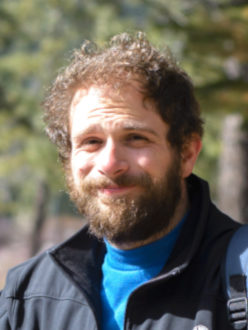Keynote 1: “Open Source Software in the SAVI Things Testbed”
Tuesday 29, 11:30-12:15
Abstract:
We are currently redesigning the SAVI (Smart Applications on Virtual Infrastructure) multitier cloud testbed to provide an application platform for smart city experiments, and specifically to deploy in the City of Vaughan, a rapidly growing city north of Toronto. In this talk we will discuss the various open source software that we have considered, experimented with and selected for our platform. We will focus on our design of the critical middleware layer, but also discuss the deployment of ML in the multitier cloud and the issues that arise in introducing widespread containerization.
Speaker: Prof. Alberto Leon-Garcia (University of Toronto)
Alberto Leon-Garcia is Professor in Electrical and Computer Engineering at the University of Toronto. He is a Fellow of the Institute of Electronics an Electrical Engineering “For contributions to multiplexing and switching of integrated services traffic”. He authored the textbooks: Probability and Random Processes for Electrical Engineering, and Communication Networks: Fundamental Concepts and Key Architecture. Leon-Garcia was Founder and CTO of AcceLight Networks in Ottawa from 1999 to 2002. He was Scientific Director of the NSERC Strategic Network for Smart Applications on Virtual Infrastructures (SAVI), and Principal Investigator of the project on Connected Vehicles and Smart Transportation. SAVI designed and deployed a national testbed in Canada that converges cloud computing and software-defined networking. CVST designed and deployed an application platform for smart transportation. Leon-Garcia is Founder and CEO of StreamWorx.ai which offers massive-scale, real-time streaming, analytics, and machine learning software for network operations and cybersecurity applications.
Memberships/Awards
-
- University of Toronto Distinguished Professor in Application Platforms and Smart Infrastructure (2012-17)
- IEEE Canada A.G.L. McNaughton Gold Medal 2010 for contributions to the engineering profession in Canada
- Fellow of Engineering Institute of Canada, 2008
- Thomas W. Eadie Medal from the Royal Society of Canada in recognition of major contributions to Engineering, with impact on communications and development of the Internet, 2006
- Canada Research Chair on Autonomic Service Architecture (Tier 1), 2005-2012
- Jeffrey Skoll Chair in Computer Networks and Innovation, Endowed Chair 2003-2007
- Fellow of the IEEE, “For contributions to multiplexing and switching of integrated services traffic,” 1999
- IEEE Millenium Medal, 2000
- Nortel Institute Chair in Network Architecture and Services, Endowed Chair, 1997-2000.
Keynote 2: “Network Slicing: Concepts, Standardization, Open Issues”
Tuesday 29, 12:15-13:00
Abstract:
Speaker: Dr. Sławomir Kukliński, (Orange Polska & WUT)
Keynote 3: “Connectivity Standards in Edge Autonomy Applications”
Tuesday 29, 14:15-15:00
Abstract:
The nexus of increased computational density and high-speed ubiquitous network connectivity is enabling a new class of “Edge Autonomy” Aapplications. These are fully-decentralized, peer-to-peer systems able to interact intelligently with their environment. These complex systems integrate software and hardware components from many providers requiring a new class of “network connectivity standards” that provides the foundation for robust, real-time syntactic and semantic interoperability. In this presentation, we provide examples of edge autonomy applications and introduce some of the standards that address the connectivity challenges of these systems.
Speaker: Fernando Garcia-Aranda, (Real-Time Innovations, USA)
Keynote 4: “Beyond 5G: Key Technologies and Standards“
Tuesday 29, 15:00-15:45
Abstract:
As the 5G enters a stable phase in terms of the system architecture, 3GPP Release 17 starts to investigate advanced features that would shape its evolution. This talk aims to provides an insight analysis for mobile networks beyond 5G considering the advancements and implications introduced by the evolution of softwarization, agile control and deterministic services. It elaborates the 5G landscape elaborating new business prospects, emerging use cases and key technologies that constitute the pillars for the evolution beyond 5G considering new radio paradigms, micro-service oriented core network, native IP based user plane, network analytics and the support of low latency – high reliability.






